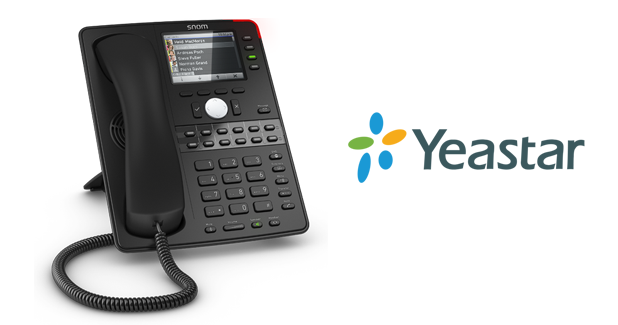Security researchers from Rapid7 have found a large number of insecure UDP Internet services in Germany, which are used for VoIP. The researchers found nearly six million exposed SIP services on port 5060 / UPD, more than any other country in the world. The Session Initiation Protocol (SIP) is used to establish a communication session in Internet telephony and is particularly difficult to secure. Only encrypted SIP (SIP-TLS on port 5061 / TCP) provides adequate protection against active and passive eavesdropping and toll fraud, but plain text SIP is still widely used in Germany. This is demonstrated by Rapid7’s new National Exposure Index, an annual ranking that examines the extent to which countries around the world are at risk of active cyber attacks. For the study, Rapid7s security researchers scoured the entire Internet for TCP / IP services that, for example, are not secured with modern encryption methods or offer…
One of Africa’s largest economy, if not the largest (an ongoing debate with South Africa), Nigeria’s VoIP sector has seen in increase of subscription over a period of 12 months. With 93% of growth on one year, VoIP went from 46,348 users in May 2017 to reaching 89,447 in April 2018. Out of the two main operators in that segment, Smile Communications is in charge of 93% of the market with 83,445 accounts against 6,032 for its smaller rival, Ntel network. Still, the VoIP technology is a very narrow market on a GSM-dominated market. So far VoIP represents 0.06% of communications when GSM accounts for 99.7%. This is mainly due to a lack of broadband penetration into the country’s infrastructure. The Nigerian Communications Commission (NCC) assured that it expect to increase broadband penetration to 30%, compared to 22% right now, by putting on policies to achieve this goal. Prof. Umar…
New technologies, especially in wireless communications, is helping increase VoIP services. As smartphones, laptops and tablets are being more available worldwide, VoIP services are also growing and the competition between different providers is leading to a constant update in their offers. The BYOD (Bring Your Own Device) policy that is spreading in companies is another key factor in this demand on VoIP. Devices like phablets (a mix between smartphones and tablets like the Galaxy S9+) are replacing computers on many aspects. The PMR (Persistence Market Research) expect the market to grow up to US$ 194.5 Billion in the next seven years. Most of this increase will be from long distance VoIP calls that could represent US$ 120 Billion in revenue.
The secretary-general of the International Telecommunication Union (ITU), Zhao Houlin, explained at a press conference in Geneva, Switzerland, that infrastructure, investment, innovation and inclusion, or the “4 I’s”. Those pillars for information and communication technology (ICT) will be an obligation to reach the UN Sustainable Development Goals (SDG), especially for the next ten years. Infrastructure are essential to hold any economy based on communication and high tech. The future of digital economy in sustainable cities, will largely be based on the capacity to construct strong equipments for those infrastructures, not only to connect people but also objects. Strong investments are fundamental for the development of ICT. In order to see progress on SDG, innovation in the domain of finance will be needed and a mix between public and private investors is one of the solutions. Opportunity is only possible with innovation, thus small companies that base their growth and survival…
BullsEye Telecom has entered the VoIP based Key System market. Founded in 1999 in Michigan, BullsEye started by focusing on its local market. Since then, they provide SD-WAN, VoIP, broadband, and POTS to customers across the U.S. They acquired an experience in converting Plain Ordinary Telephone Service (POTS) to VoIP lines. It was able to be a leader company in the U.S. as a multi-location communications solutions provider. They announced yesterday the launch of its VoIP Based key system. Evan Branstnern, network endpoint engineer, explains: “The goal with BullsEye’s VoIP Key System was to replicate a phone system that people are used to while at the same time integrate the latest technology and best practices that are reflected in a VoIP-based product.” This technology will let users park calls with just a button, and then see which line is parked or available. It also let calls being picked up from…
Yeastar is a Chinese company founded in 2006 and based in Xiamen. It offers innovative equipments in VoIP PBX systems and VoIP Gateways for the SMB. Since then, Yeastar became a leader in the industry. On the other hand, Snom (a leading German manufacturer) started in 1997 as one of the first to understand the VoIP technology, thus offering in 2001 the first IP phone. It has today one of the largest catalogue of products for any kind of business or need in connection to communication. It became in 2016 a division of VTech Holdings Limited. Both companies had an history of making sure that their products could work together. Still the interoperability was not complete until recently. As for now, Yeastar auto provisioning supports all the Snom IP Phones, as they were all successfully tested. The full range of Snom IP phones, including the latest Snom D785 advanced desk phone…
This article has been updated. Here is the updated version: Can Blockchain Globalize Number Portability?
Voice over Internet Protocol (VoIP) has been revolutionizing global communications for a while and nowadays it is considered the coolest and smartest way to talk on the phone. As a result, there has been an explosion of VoIP apps, programs and hardware that offer you amazing features. So whether you are a business owner, an online video gamer, or just an ordinary user, you know that VoIP provides you with an easy, low-cost way to communicate with people around the world. But it’s hard to choose the right application for you with so many options available. So to make your life easier, here are the 10 most popular VoIP apps available: Skype Skype was the first VoIP app for end-user, and is still, by far, one of the most popular VoIP apps available, with more than 300 million subscribers. Skype to Skype audio and video calls, group calls, instant messaging…
Are you part of the VoIP industry or just interested in the subject? Are you wondering what the VoIP market is up to? Do you want to keep your strategy ahead of the game? Are you concerned about the future of cloud communications? If so, you should start attending VoIP events and conferences, after all, it is the best way for you to stay up-to-date with the latest VoIP news, innovations, trends, and at the same time engage in high-quality networking. There are hundreds of telecom conferences around the world, but here are our top must-attend VoIP events: IT EXPO This event was first held 18 years ago and it is still one of the industry’s most important annual starting points. With its content and participants continuously evolving with the marketplace, is it one of the only VoIP events dedicated to solutions that drive communications transformation for the enterprise mid-market,…












